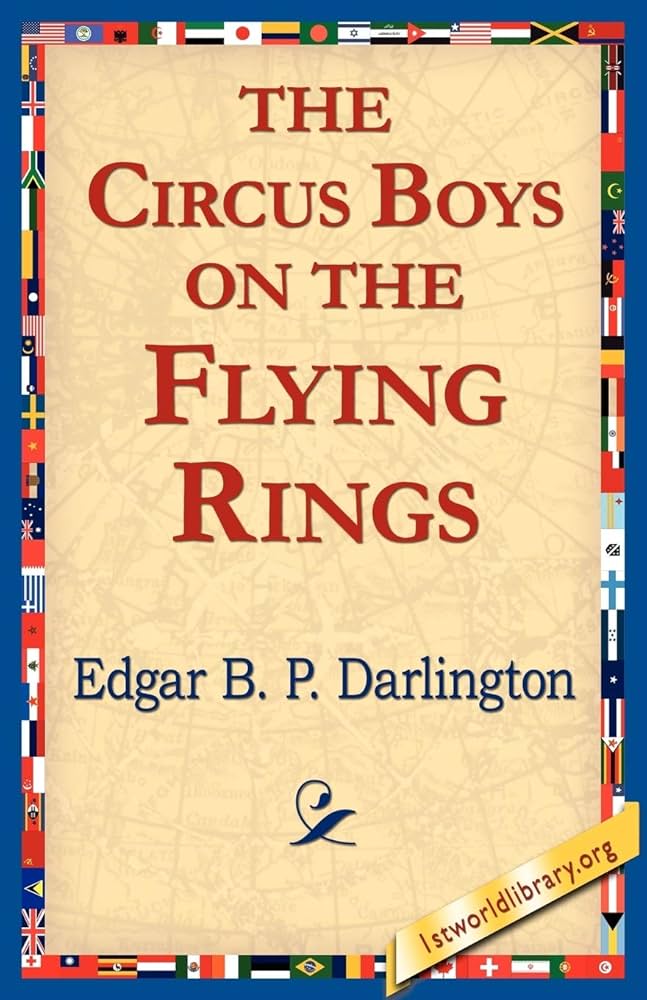Chapter XIV — The circus boys on the flying Rings
byChapter XIV captures a pivotal day in Phil Forrest’s circus journey, a turning point shaped by confidence and the quiet ambition that drives young performers. With the afternoon crowd filling the tent, Phil’s steady rise in popularity is felt not just in applause but in the way others begin to watch him differently. Still, Phil remains grounded, brushing off his achievements as strokes of luck rather than signs of rising greatness. Yet in his heart, he carries a desire to create something memorable—an act that would be more than just routine. That yearning leads him to consider refining his elephant performance, adding unexpected elements to make the act unforgettable. Though hesitant at first, he begins to share this vision with Mr. Kennedy, hoping it might evolve into something bigger than he ever imagined. For Phil, each performance isn’t just about spectacle—it’s about pushing limits with purpose and imagination.
Driven by the idea, Phil gets to work with the kind of focus that often separates dreamers from doers. He brings his idea to both the costume and property teams, describing not just how the act should look but how it should feel—surprising, playful, and new. Kennedy, ever the realist, raises concerns but doesn’t block the effort. Mr. Sparling, on the other hand, listens with a skeptical ear, cautious of too much experimentation. But Phil’s enthusiasm, backed by a clear plan and confidence earned through hard work, wins him a cautious green light. They agree to try it privately first, and if it works, they’ll move forward. With every conversation and adjustment, Phil isn’t just refining a performance—he’s shaping his place in the circus. His ideas, once tentative, now carry weight.
The rehearsals are done away from public eyes, their success measured in reactions from peers and the spark it lights in Sparling’s usually guarded expression. Phil’s approach to performance is holistic—he thinks about the visual surprise, the timing of movement, and even the fabric of his costume. On the big day, all that preparation culminates in a grand reveal. He rides in on Emperor, appearing almost invisible at first, tucked in plain sight as part of the elephant’s adornments. But as the music swells and the lights catch him mid-motion, he emerges in a flash of red silk tights—no longer hidden but commanding. The audience gasps, then erupts in cheers. For a moment, Phil feels like everything he dreamed of is within reach.
This performance is more than a display of skill—it’s an unveiling of potential. By blending physical precision with showmanship, Phil delivers a performance that feels fresh, fun, and fearless. It earns him not just the crowd’s attention but also a nod of genuine approval from Sparling. That reaction means more than applause—it signals trust and opportunity. Phil, in crafting this act, has shown that he understands the delicate balance between tradition and innovation. He hasn’t just joined the circus; he’s helping shape its future. His success underscores the idea that reinvention, even in something as old as the circus, still matters. When done right, it can breathe life into every corner of the tent.
Phil’s boldness speaks to a broader truth often overlooked in performance arts—the value of calculated risk. A truly great act isn’t born from safety; it emerges from moments of inspired daring, grounded in hard work and careful thought. Phil’s choice to take that chance, and to see it through with integrity and detail, elevates him in the eyes of his peers and mentors. Young performers watching from the wings may find in him a role model—not because he’s perfect, but because he dares to try something new and takes responsibility for it. That kind of courage, quiet but fierce, is what keeps the circus alive and evolving. In the end, Phil walks off the stage not just as a crowd favorite but as a creator, someone who took an ordinary opportunity and made it spectacular.
His journey reminds us that ambition isn’t just about wanting more—it’s about envisioning how things can be better, more magical, more human. Phil doesn’t wait for permission to dream; he earns it by doing the work, by listening, adjusting, and stepping up when it matters. The audience only sees the final act, but those who know him best recognize the path it took to get there. That is where the real story lies—not in the applause, but in the preparation. As Phil continues to grow, one thing becomes clear: the circus isn’t just his stage—it’s his calling. And Chapter XIV is only the beginning.

